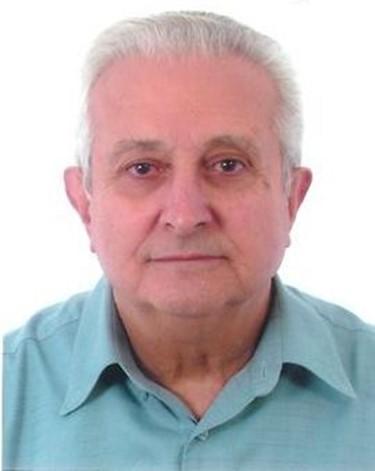Daniel Comboni
Comboni Missionaries
Institutional area
Other links
Newsletter
In Pace Christi
Cavalieri Giuseppe
Fr. Giuseppe was born on 27 March 1939 in Sant’Angelo d’Alife, in Caserta province. While he was still a child, his father, who was a forestry guard, moved the family for reasons of work to Fermo, in the Marches. At the age of seventeen, Giuseppe entered the Comboni novitiate in Florence and then went to that of Gozzano. He first consecrated himself to the Institute on 9 September 1957. When he had completed theology in Verona and Venegono and had taken perpetual vows on 9 September 1963, he was ordained priest on 28 June 1964, together with about forty confreres in the same class.
Fr. Giuseppe’s first field of apostolate was missionary animation among the youth of the region while a member of the Naples community. His service lasted about six years during a period of great change in the culture of the youth, in traditions and the religious life itself.
In 1970, Fr. Giuseppe left Italy for the Southern Province of Brazil. That was during the military dictatorship which began with a coup on 31 March 1964. The country was going through the worst period in its history, characterised by the absence of freedom, the use of torture against political opponents and the practice of state terrorism.
The first stage in his long apostolic journey lasted from 1970 to 1975, in the Comboni of São Gabriel da Palha, in the diocese of São Mateus (ES). It was a time of crisis since the formation system for adolescents as considered out of date. At a time of “global contestation” by the youth of that time, the minor seminary was considered not only useless but even harmful to the formation of the youth. One alternative was to create a college for pupils of the upper classes. The same problem was encountered at the Comboni seminary of Jerônimo Monteiro (ES). From 1976 to 1977, Fr. Giuseppe was also a member of that community. “The first step in the process of emptying that seminary was to suspend activities and send possible candidates to other Comboni seminaries”. At the high school in Cachoeiro de Itapemirim (ES), the surviving seminarians of the seminaries of Ibiraçu and Jerônimo Monteiro were assembled, assisted by Fr. Giuseppe.
Fr. Giuseppe was a member of the community of Pimenta Bueno (RO) from 1978 to 1980. There, committed to the work of raising social and political awareness, he had to face up to the difficulties and risks associated with a pastoral that was considered dangerous since it aimed at uniting faith and politics.
In 1988, he was granted his request to take part for some months in the SPICS (International Pauline Social Communications Studies) Course in Rome.
In the early nineties, he assumed the presidency of the São Judas Tadeu Social Service at São José do Rio Preto (SP), showing competence and creativity. For this reason, the provincial appointed him animator and coordinator of community services.
In 1995, he was recalled to Italy and assigned to vocations ministry at the Bari community. In 2002, having returned to Brazil, he accepted the post of provincial bursar. In December 2004, he was asked to take on a parish in Brasilia. Humble, available and obedient as always, he took charge of the parish of the Holy Family in Taguatinga (DF) where there was “theological, cultural and religious pluralism”. That was why the parish was organised to unite the various ethnic groups in a community project, in order to avoid isolating or discriminating against the various groups. It was entrusted to the Combonis in 1971 and was served for 36 years by about 25 Combonis and definitively handed over to the archdiocese of Brasilia in 2007 by the last Comboni parish priest, Fr. Giuseppe.
He was then sent to the parish of Santo Antonio (diocese of São Mateus). Other stages of the fruitful mission of Fr. Giuseppe consisted in the parishes of Nova Contagem, in the outskirts of Belo Horizonte (MG), Tangarà da Serra (MG), Santa Amélia a Curitiba (Paraná), and, as parish priest, Nova Venécia (ES). He lived out the rest of his years in Carapina (ES), where he worked tirelessly in the pastoral field until he contracted ischaemia and the deadly Covid-19 virus.
In accordance with his wishes, he was buried in the cemetery of Nova Venécia alongside other Combonis, in a place that he himself had prepared for the Comboni Missionary Family.

